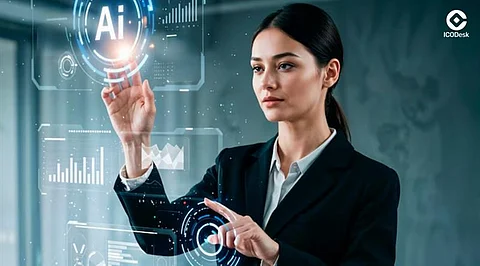

The convergence of Artificial Intelligence and Blockchain technology is reshaping industries, creating smarter, more secure, and more efficient digital ecosystems. While blockchain ensures trust, transparency, and decentralization, AI introduces intelligence, automation, and adaptability. Together, they are powering the next generation of blockchain projects, unlocking innovations that go beyond finance into supply chains, healthcare, cybersecurity, and beyond.
AI algorithms are enhancing blockchain networks by analyzing transaction data in real time, identifying anomalies, and predicting market trends. For example, AI-driven trading bots integrated into blockchain-based exchanges are capable of making faster and more accurate trading decisions compared to humans.
Blockchain’s immutability already ensures tamper-proof records, but AI strengthens it by detecting fraudulent behavior patterns. AI systems can flag unusual activity, helping DeFi protocols and crypto exchanges prevent hacks, rug pulls, and phishing attempts.
Blockchain ensures transparency in supply chains, while AI improves efficiency by predicting demand, identifying bottlenecks, and automating logistics. Companies are already using AI + Blockchain to track goods in real-time, verify authenticity, and prevent counterfeiting.
In healthcare, blockchain secures patient data, and AI leverages this data for predictive diagnostics and personalized treatment. Projects are emerging that store encrypted health records on blockchains, allowing AI models to access anonymized data for advanced medical research without compromising patient privacy.
Blockchain networks often face criticism for high energy consumption. AI is being used to optimize energy use in mining and validation processes, making blockchain more eco-friendly. AI-driven energy grids connected with blockchain are also helping track carbon credits and renewable energy distribution.
AI is transforming smart contracts by making them adaptive and self-improving. Instead of rigid, pre-programmed rules, AI-enhanced smart contracts can learn from historical data, adjust to new inputs, and optimize execution, unlocking use cases in insurance, supply chains, and decentralized governance.
DAOs are blockchain-powered communities that rely on voting mechanisms for decision-making. Integrating AI allows these organizations to process proposals intelligently, predict outcomes, and even automate governance, making DAOs more efficient and less prone to human error.
The integration of AI and blockchain is creating a new wave of intelligent, decentralized systems that are more secure, adaptive, and impactful. From finance to healthcare, supply chains to sustainability, this fusion is driving innovation and adoption at scale. As both technologies evolve, their synergy could redefine how data, assets, and decisions are managed across the digital world. The future of blockchain will not just be decentralized—it will be intelligent, predictive, and self-optimizing, powered by AI.